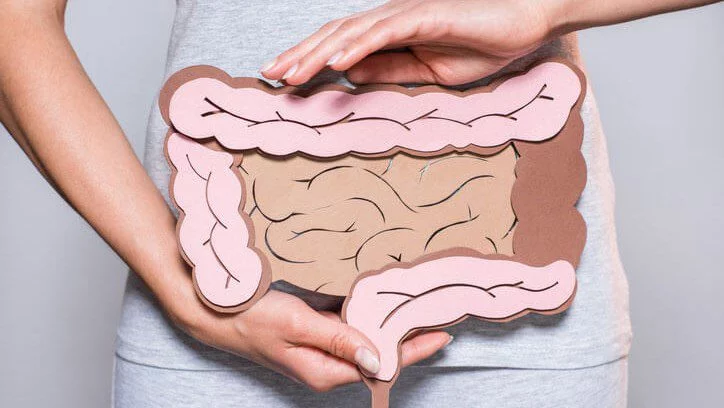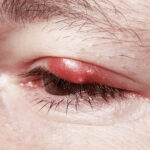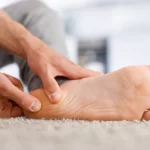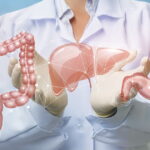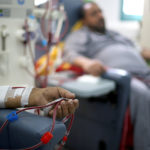Digestive Problems
Gastroesophageal reflux disease (GERD), chronic diarrhea, and colorectal cancer are examples of common digestive problems. When investigated, some conditions may not reveal any visible abnormalities in the digestive tract, yet symptoms persist.
In other cases, there are both symptoms and noticeable irregularities in the digestive system. Most digestive problems can be prevented and effectively managed with proper treatment.
GERD, for instance, is a chronic condition where stomach acid frequently flows back into the esophagus, causing heartburn and other symptoms. This condition can often be managed with lifestyle changes, medications, and sometimes surgery.
Chronic diarrhea, characterized by loose stools occurring three or more times a day for an extended period, can result from various causes, including infections, digestive disorders like irritable bowel syndrome (IBS), or inflammatory bowel diseases such as Crohn’s disease and ulcerative colitis. Treatment involves addressing the underlying cause, dietary modifications, and medications.
Colorectal cancer is a serious condition where cancerous growths develop in the colon or rectum. Early detection through screening methods like colonoscopy significantly improves treatment outcomes.
Preventive measures include maintaining a healthy diet high in fiber, regular physical activity, and avoiding excessive alcohol consumption and smoking.
In many cases, digestive problems can be prevented through a healthy lifestyle. A balanced diet rich in fiber, adequate hydration, regular exercise, and stress management are key factors in maintaining digestive health.
Additionally, regular medical check-ups and screenings play a crucial role in the early detection and prevention of more serious digestive conditions.
Consulting a healthcare professional for persistent digestive symptoms is essential for proper diagnosis and treatment, ensuring better health outcomes and improved quality of life.
What are Gastrointestinal Diseases?
Gastrointestinal (GI) diseases affect the gastrointestinal tract, which extends from the mouth to the anus. These diseases are categorized into two main types: functional and structural. Examples of gastrointestinal diseases include colitis, food poisoning, lactose intolerance, and diarrhea.
What are Functional Gastrointestinal Diseases?
Functional gastrointestinal diseases are conditions where the GI tract appears normal upon examination but does not function properly. These are the most common problems affecting the GI tract, including the colon and rectum. Examples of functional GI diseases include:
- Constipation
- Irritable Bowel Syndrome (IBS)
- Nausea
- Gas
- Bloating
- Diarrhea
Several factors can disrupt the GI tract’s motility, or its ability to move contents through the digestive system effectively. These factors include:
- Low Fiber Diet: Insufficient dietary fiber can slow down bowel movements.
- Lack of Exercise: Physical inactivity can lead to poor digestive health.
- Changes in Routine: Traveling or other lifestyle changes can affect digestion.
- High Dairy Intake: Consuming large amounts of dairy can cause digestive issues for some people.
- Stress: Psychological stress can impact GI function.
- Ignoring Bowel Movement Urges: This can be due to conditions like hemorrhoids.
- Overuse of Anti-diarrheal Medications: Long-term use can weaken bowel muscle movements (motility).
- Certain Medications: Antacids containing calcium or aluminum, antidepressants, iron pills, and strong pain medicines (such as narcotics) can affect GI motility.
- Pregnancy: Hormonal changes and physical pressure on the intestines can disrupt digestion.
Some individuals may also experience visceral hypersensitivity, a heightened sensitivity in the organs of the GI tract, causing pain or discomfort even when the organs function normally.
What are Structural Gastrointestinal Diseases?
Structural gastrointestinal diseases are conditions where the bowel appears abnormal upon examination and also does not function properly. In some cases, surgical removal of the structural abnormality is necessary. Common examples of structural GI diseases include:
- Strictures: Narrowing of the intestines.
- Stenosis: Abnormal narrowing in a blood vessel or other tubular organ or structure.
- Hemorrhoids: Swollen veins in the rectal area.
- Diverticular Disease: Formation of small bulging pouches in the digestive tract.
- Colon Polyps: Growths on the inner lining of the colon.
- Colon Cancer: Cancer of the large intestine.
- Inflammatory Bowel Disease (IBD): Chronic inflammation of the digestive tract, including Crohn’s disease and ulcerative colitis.
What are Some Common Gastrointestinal Diseases Treated by Healthcare Providers?
Healthcare providers specializing in gastrointestinal diseases are known as gastroenterologists. Surgeons who focus on these diseases are called colorectal surgeons (proctologists). Some of the most common conditions they treat include:
- GERD (Gastroesophageal Reflux Disease)
- Chronic Diarrhea
- Constipation
- Irritable Bowel Syndrome (IBS)
- Inflammatory Bowel Disease (Crohn’s Disease and Ulcerative Colitis)
- Colon Polyps and Colon Cancer
- Hemorrhoids
- Diverticular Disease
These specialists use a variety of diagnostic and treatment methods, including lifestyle and dietary modifications, medications, and surgical interventions, to manage and treat GI diseases effectively.
Constipation
Constipation, a functional gastrointestinal problem, makes it difficult to have a bowel movement, leading to infrequent (less than three times a week) or incomplete stools. It often results from inadequate dietary fiber or disruptions in your regular routine or diet.
Constipation can cause straining during bowel movements, resulting in small, hard stools. It can also lead to anal problems such as fissures or hemorrhoids. Although uncomfortable, constipation is rarely indicative of a serious medical condition.
You can manage constipation at home by:
- Increasing Fiber and Water Intake: Incorporate more fruits, vegetables, whole grains, and water into your diet.
- Exercising Regularly: Engage in physical activity and gradually increase the intensity as tolerated.
- Responding to Bowel Urges: Avoid resisting the urge to have a bowel movement, as this can lead to constipation.
If these methods don’t alleviate your symptoms, laxatives can be useful. Always follow the instructions on the medication and consult your healthcare provider for guidance.
Irritable Bowel Syndrome (IBS)
Irritable Bowel Syndrome (IBS), also known as spastic colon, irritable colon, or nervous stomach, is a functional condition characterized by irregular contractions of the intestinal muscles. Factors such as certain foods, medications, and emotional stress can trigger IBS.
Symptoms of IBS include:
- Abdominal Pain and Cramps
- Excess Gas
- Bloating
- Changes in Bowel Habits: This can include harder, looser, or more urgent stools than normal.
- Constipation and/or Diarrhea
You can manage IBS at home by:
- Avoiding Excessive Caffeine: Reduce your intake of caffeinated beverages.
- Increasing Dietary Fiber: Include more fiber-rich foods in your diet.
- Identifying and Avoiding Trigger Foods: Monitor and avoid foods that trigger your IBS symptoms.
- Managing Stress: Minimize stress or learn coping mechanisms to deal with stress effectively.
- Taking Prescribed Medications: Follow your healthcare provider’s instructions for any medications.
- Staying Hydrated: Ensure you drink plenty of water throughout the day.
- Getting Quality Sleep: Aim for restful and sufficient sleep each night.
By making these adjustments, you can significantly reduce the symptoms of constipation and IBS, improving your overall digestive health.
Hemorrhoids
Hemorrhoids are dilated veins in the anal canal, classified as a structural disease. They result from chronic excess pressure due to straining during bowel movements, persistent diarrhea, or pregnancy. Hemorrhoids can be internal or external.
Internal Hemorrhoids
Internal hemorrhoids are blood vessels inside the anal opening. Straining can cause them to fall into the anus, leading to irritation and bleeding. Severe cases may result in prolapse, where the hemorrhoids stick out of the anus.
Treatment includes:
- Improving bowel habits, such as avoiding constipation, not straining during bowel movements, and responding to the urge to defecate.
- Using ligating bands, applied by a healthcare provider, to eliminate the hemorrhoidal vessels.
- Surgical removal, necessary for a small number of cases involving large, painful, and persistent hemorrhoids.
External Hemorrhoids
External hemorrhoids are veins located just under the skin outside the anus. Straining can cause these veins to burst, forming painful blood clots under the skin, a condition known as a “pile.”
Treatment includes:
- Removing the clot and affected vein under local anesthesia.
- Surgically removing the hemorrhoid itself.
Anal Fissures
Anal fissures are splits or cracks in the lining of the anus, another structural disease. They often result from passing very hard or watery stools. The crack exposes underlying muscles that control stool passage, leading to intense pain, bleeding, and spasms after bowel movements.
Initial treatment includes:
- Pain medication.
- Dietary fiber to prevent large, bulky stools.
- Sitz baths (sitting in a few inches of warm water).
If these treatments are ineffective, surgery may be needed to repair the fissure.
Perianal Abscesses
Perianal abscesses, also a structural disease, occur when tiny anal glands become blocked, leading to infection from bacteria. Pus formation results in an abscess.
Treatment includes:
- Draining the abscess, typically performed under local anesthesia in a healthcare provider’s office.
Anal Fistula
An anal fistula, another structural disease, often develops after an abscess is drained. It forms an abnormal, tube-like passage from the anal canal to a hole in the skin near the anus opening. Body wastes are diverted through this channel, causing itching, irritation, drainage, pain, and bleeding.
Treatment includes:
- Surgical intervention to drain the abscess and close off the fistula, as they rarely heal on their own.
Hemorrhoids, anal fissures, perianal abscesses, and anal fistulas are all structural diseases affecting the anal and rectal areas. Proper diagnosis and treatment by healthcare providers, including lifestyle changes, medications, and surgical interventions, are essential for effective management and relief of symptoms.
Diverticular Disease
Diverticular disease involves the formation of small outpouchings (diverticula) in the muscular wall of the large intestine, typically in the sigmoid colon, a high-pressure area of the lower large intestine. This condition is prevalent, affecting about 10% of individuals over age 40 and 50% of those over age 60 in Western cultures. It often results from a diet low in fiber.
Diverticulosis can progress to diverticulitis, an infection or inflammation of the diverticula. Complications, occurring in about 10% of those with diverticulosis, include bleeding and bowel obstruction.
Treatment of diverticulitis includes:
- Addressing constipation.
- Administering antibiotics for severe cases.
- Surgery as a last resort for significant complications, to remove the diseased segment of the colon.
Colon Polyps and Cancer
Each year, 130,000 Americans are diagnosed with colorectal cancer, the second most common cancer in the United States. Advances in early detection and treatment have made colorectal cancer one of the most curable forms of the disease. Screening tests can prevent, detect, and treat colorectal cancer long before symptoms appear.
The Importance of Colorectal Cancer Screening
Almost all colorectal cancers begin as benign colon polyps in the tissues lining the colon and rectum. Cancer develops when these polyps grow and abnormal cells invade surrounding tissue.
Removing polyps can prevent colorectal cancer, and most precancerous polyps can be painlessly removed during a colonoscopy screening. Advanced colorectal cancer, if not detected early, requires more complex surgical techniques.
Symptoms of advanced colorectal cancer include:
- Blood on or mixed in with the stool.
- Changes in bowel habits.
- Narrowing of the stool.
- Abdominal pain.
- Weight loss.
- Constant tiredness.
Detection Methods:
- Screening people at average risk starting at age 45.
- Screening those at higher risk, such as individuals with a family or personal history of colon polyps or cancer.
- Investigating symptoms in patients.
- Chance findings during routine check-ups.
Early detection is crucial for a cure.
Colitis
Colitis refers to inflammation of the bowel and includes several types:
- Infectious Colitis: Caused by infection.
- Ulcerative Colitis: Cause unknown.
- Crohn’s Disease: Cause unknown.
- Ischemic Colitis: Caused by reduced blood flow to the colon.
- Radiation Colitis: Resulting from radiotherapy.
Symptoms of colitis include:
- Diarrhea.
- Rectal bleeding.
- Abdominal cramps.
- Urgency to empty the bowels.
Treatment depends on the type of colitis and is typically determined through colonoscopy and biopsy.
Proper management of these gastrointestinal conditions through lifestyle changes, medications, and, when necessary, surgical interventions can significantly improve patient outcomes and quality of life.
Prevention of Gastrointestinal Diseases
Gastrointestinal diseases can often be prevented or minimized through adopting a healthy lifestyle, practicing good bowel habits, and undergoing timely cancer screening.
Lifestyle and Prevention Strategies
- Healthy Diet:
-
- High Fiber Intake: Ensure your diet includes plenty of fruits, vegetables, and whole grains to maintain regular bowel movements and prevent conditions like diverticular disease and constipation.
- Limit Processed Foods: Reduce consumption of processed meats, sugars, and saturated fats, which can contribute to digestive issues like colorectal cancer.
- Moderate Alcohol and Avoid Tobacco: Excessive alcohol consumption and smoking are linked to an increased risk of various gastrointestinal diseases, including peptic ulcer disease and liver problems.
- Good Bowel Habits:
-
- Respond to Bowel Urges: Avoid delaying or ignoring the urge to have a bowel movement, which can lead to constipation or hemorrhoids.
- Hydration: Drink plenty of water throughout the day to keep stools soft and easier to pass.
- Regular Physical Activity:
-
- Engage in regular exercise to promote overall digestive health and maintain a healthy weight, which reduces the risk of conditions like gallstones and gastroesophageal reflux disease (GERD).
Cancer Screening
- Colonoscopy:
-
- Average-risk individuals should undergo a colonoscopy starting at age 45. If there is a family history of colorectal cancer or polyps, screening may begin earlier, typically 10 years before the affected family member was diagnosed.
- Early Detection of Colorectal Cancer:
-
- Recognize symptoms such as changes in bowel habits, blood in the stool, abdominal pain, or unexplained weight loss. Early detection significantly improves treatment outcomes.
Other Gastrointestinal Diseases
There are numerous other functional and structural gastrointestinal diseases that require specific management and treatment. These include:
- Peptic Ulcer Disease
- Gastritis
- Gastroenteritis
- Celiac Disease
- Crohn’s Disease
- Gallstones
- Fecal Incontinence
- Lactose Intolerance
- Hirschsprung Disease
- Abdominal Adhesions
- Barrett’s Esophagus
- Appendicitis
- Indigestion (Dyspepsia)
- Intestinal Pseudo-obstruction
- Pancreatitis
- Short Bowel Syndrome
- Whipple’s Disease
- Zollinger-Ellison Syndrome
- Malabsorption Syndromes
- Hepatitis
Each of these conditions requires specific approaches to management and treatment, often involving a combination of dietary modifications, medications, and, in some cases, surgical intervention.
By adopting preventive measures and seeking prompt medical attention for symptoms, individuals can reduce the risk of developing gastrointestinal diseases and improve their overall digestive health.
Regular consultation with healthcare providers is crucial for early detection and effective management of these conditions.
Benefits of Eating Strawberries

A graduate of Computer Science and Information Management Technology. Diploma – Caregiving, Certificates – Dementia and Diabetes Awareness and Management. A researcher, blogger, songwriter, singer and acoustic guitarist. Born in an environment where natural talents such as healing are imparted at our natural birth. This natural talents of healing is the result of our genetic inheritance and the training from family environment.







